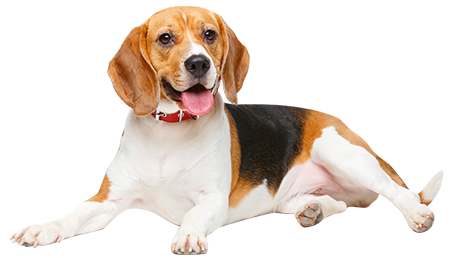Boosting Your Dog's Vitality: Key Ingredients to Look For
Boosting Your Dog's Vitality: Key Ingredients to Look For
Table of Contents
Introduction: Understanding Canine Vitality
The Importance of Nutrition in Dog Health
Key Nutrients to Boost Your Dog's Vitality
1. High-Quality Proteins
2. Healthy Fats
3. Essential Carbohydrates
4. Vitamins and Minerals
5. Antioxidants
Special Con
2025/04/17
Boosting Your Dog's Vitality: Key Ingredients to Look For
Table of Contents
- Introduction: Understanding Canine Vitality
- The Importance of Nutrition in Dog Health
- Key Nutrients to Boost Your Dog's Vitality
- 1. High-Quality Proteins
- 2. Healthy Fats
- 3. Essential Carbohydrates
- 4. Vitamins and Minerals
- 5. Antioxidants
- Special Considerations for Different Breeds and Ages
- Homemade vs. Commercial Dog Food
- Additional Tips to Boost Your Dog's Vitality
- Frequently Asked Questions
- Conclusion: Prioritizing Your Dog's Health
Introduction: Understanding Canine Vitality
Maintaining your dog's vitality is crucial for ensuring a long, happy life. Just like humans, dogs require a balanced diet that provides essential nutrients to thrive. In this article, we will delve into the key ingredients that contribute to your dog’s overall health and well-being, and how you can incorporate them into their diet.
The Importance of Nutrition in Dog Health
Nutrition plays a fundamental role in a dog's health. A well-balanced diet helps support their immune system, maintain a healthy weight, and promote strong muscles and bones. Proper nutrition can prevent various health issues, including obesity, joint problems, and skin conditions. Understanding the nutritional needs of dogs is the first step towards enhancing their vitality.
Key Nutrients to Boost Your Dog's Vitality
To ensure your dog receives the correct nutrition, it’s essential to focus on several key nutrients. Each nutrient has its specific benefits, which we will explore in detail.
1. High-Quality Proteins
Proteins are the building blocks of your dog's body. They are crucial for muscle growth, tissue repair, and maintaining a healthy immune system. Look for dog foods that list meat as the primary ingredient, which should ideally be high-quality sources such as chicken, beef, lamb, or fish.
In addition to whole meats, other protein sources like eggs and legumes can also enhance your dog's protein intake. Ensure that your dog gets enough protein, as this will significantly impact their energy levels and vitality.
2. Healthy Fats
Fats are an essential energy source for dogs. They not only provide calories but also support healthy skin and coat, aid in the absorption of fat-soluble vitamins, and play a vital role in hormone production.
Look for dog foods that contain healthy fats, such as fish oil, flaxseed oil, and chicken fat. Omega-3 and Omega-6 fatty acids are particularly beneficial, promoting heart health and reducing inflammation.
3. Essential Carbohydrates
While dogs are primarily carnivores, carbohydrates can provide a valuable source of energy. However, it’s important to choose the right types. Opt for whole grains like brown rice and oats, or vegetables like sweet potatoes and peas. These sources provide not only energy but also essential fiber, which aids digestion.
Avoid fillers like corn and soy, which can lead to allergies and digestive issues. By choosing quality carbohydrates, you contribute to your dog’s overall vitality and health.
4. Vitamins and Minerals
Vitamins and minerals play a crucial role in maintaining your dog's health. Essential vitamins such as A, D, E, and K, along with B vitamins, support various bodily functions. Minerals like calcium and phosphorus are vital for bone health, while zinc and iron contribute to a strong immune system.
Ensure that your dog’s diet includes a variety of fruits and vegetables, as these are often rich in vitamins and minerals. Foods like carrots, blueberries, and spinach can boost nutritional intake significantly.
5. Antioxidants
Antioxidants are compounds that help combat free radicals in the body, reducing oxidative stress and promoting longevity. Ingredients rich in antioxidants, such as blueberries, spinach, and pumpkin, can help improve your dog's vitality.
Incorporating a diet high in antioxidants can lead to improved overall health and prevent chronic diseases. Look for dog foods that advertise high antioxidant content for added benefits.
Special Considerations for Different Breeds and Ages
Different dog breeds and ages may have varying nutritional needs. Puppies, for instance, require higher protein levels for growth and development, while senior dogs may need lower-calorie diets to maintain a healthy weight.
Large breed dogs are prone to joint issues, so ensuring their diet is rich in glucosamine and chondroitin can help maintain joint health. Always consult with your veterinarian to tailor the diet to your dog’s specific needs.
Homemade vs. Commercial Dog Food
When it comes to feeding your dog, you have the option of choosing between homemade meals and commercial dog food. Each has its advantages and disadvantages.
Homemade dog food allows for complete control over ingredient quality and can be tailored to meet your dog's specific needs. However, it requires thorough research to ensure nutritional balance.
On the other hand, commercial dog food often contains a mix of the necessary nutrients formulated by pet nutritionists. Look for high-quality brands that have undergone feeding trials and meet AAFCO standards.
Additional Tips to Boost Your Dog's Vitality
In addition to focusing on nutrition, consider these tips to enhance your dog's overall vitality:
- **Regular Exercise:** Daily walks and playtime are essential for maintaining your dog’s physical health and mental stimulation.
- **Hydration:** Always provide fresh water, as hydration is crucial for overall health.
- **Routine Vet Check-ups:** Regular veterinary visits can help spot health issues early and ensure your dog is up to date on vaccinations.
- **Adequate Sleep:** Ensure your dog has a comfortable, quiet place to rest and sleep, as this is vital for recovery and overall well-being.
Frequently Asked Questions
1. How do I know if my dog is getting enough nutrition?
Monitor your dog's weight, energy levels, and coat condition. A balanced diet will contribute to a shiny coat, healthy weight, and overall vitality.
2. Can I give my dog human food?
Yes, but ensure that the food is safe for dogs. Foods like carrots, blueberries, and cooked chicken can be great additions to their diet.
3. How can I transition my dog to a new diet?
Gradually mix the new food with the old food over a week, slowly increasing the amount of new food while decreasing the old.
4. What should I avoid in my dog’s diet?
Avoid foods that are toxic to dogs such as chocolate, grapes, onions, and anything with high sugar or salt content.
5. Is it necessary to give my dog supplements?
Supplements are not always necessary if your dog is receiving a balanced diet, but consult your vet for specific needs based on your dog's health.
Conclusion: Prioritizing Your Dog's Health
In conclusion, boosting your dog’s vitality requires a comprehensive approach to nutrition, exercise, and regular veterinary care. By understanding the key ingredients that contribute to your dog's health, you can make informed choices that enhance their quality of life. Prioritizing high-quality proteins, healthy fats, essential carbohydrates, and vital vitamins and minerals will ensure your furry friend thrives. Remember, a healthy dog is a happy dog, and your commitment to their well-being will pay off in the long run.
Key words:
Previous Page:
Contact Us
Address:
No. 22, Jingxing Road, Economic and Technological Development Zone, Nantong, Jiangsu Province.
E-mail:
panghuiqiang@metzpet.com
Contact Phone:
+86-18862996617














